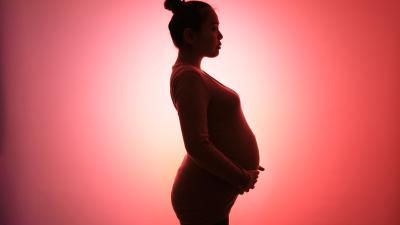New Study Confirms Link Between Plant-Based Diet Rich in Soy and Reduced Menopause Symptoms, Especially Hot Flashes

WASHINGTON—A new study, published by the North American Menopause Society in the journal Menopause, found that a diet intervention is about as effective (88%) as hormone replacement therapy (70%-90%) for reducing menopausal hot flashes, without the associated health risks.
The WAVS trial—the Women’s Study for the Alleviation of Vasomotor Symptoms—found that a plant-based diet rich in soy reduced moderate to severe hot flashes by 88% and helped women lose, on average, eight pounds in 12 weeks.
“We do not fully understand yet why this combination works but it seems that these three elements are key—avoiding animal products, reducing fat, and adding a serving of soybeans,” explains lead researcher Neal Barnard, MD, president of the Physicians Committee and adjunct professor at the George Washington University School of Medicine. “Our results mirror the diets of places in the world, like pre-Westernized Japan and modern-day Yucatán Peninsula, where a low-fat, plant-based diet including soybeans is more prevalent and where postmenopausal women experience fewer symptoms.”
The study published today is the second phase of a two-part trial, the first of which was also published in Menopause in 2021. The fall timing of the first trial raised the question of whether this symptomatic improvement might have been attributed to cooler temperatures. But women who began the study as weather warmed up in the spring had the same benefit, ruling out the effect of outside temperature.
“These new results suggest that a diet change should be considered as a first-line treatment for troublesome vasomotor symptoms, including night sweats and hot flashes,” explains Dr. Barnard.
Included in the study were 84 postmenopausal women reporting two or more hot flashes per day. They were randomly assigned either to an intervention group—consisting of a low-fat, vegan diet, including half a cup of cooked soybeans daily—or to a control group that made no diet changes for 12 weeks.
Intervention study participant Margo LaMarsh says of the changes she experienced during the trial, "The hot flashes were less frequent, and they were also less intense. I no longer had to change pajamas in the middle of the night due to sweating. The diet made me feel so much better. I have so much more energy, my skin is clearer, and I lost 20 pounds in 12 weeks."
The researchers took advantage of technology, using a cellphone app to track the frequency and severity of hot flashes in real time, electronic questionnaires to track other symptoms, and self-calibrating digital scales to track weight changes.
“This study demonstrates the effectiveness of a dietary intervention for menopausal symptoms,” Dr. Barnard explains. “As well, it is precisely the diet that would be expected to reduce the health concerns of many women reaching menopause: an increasing risk of heart disease, breast cancer, and memory problems.”
Her Hot Flashes Started Going Away In 10 Days
Media Contact
Leslie Raabe
202-527-7319
lraabe[at]pcrm.org
Founded in 1985, the Physicians Committee for Responsible Medicine is a nonprofit organization that promotes preventive medicine, conducts clinical research, and encourages higher standards for ethics and effectiveness in education and research.








